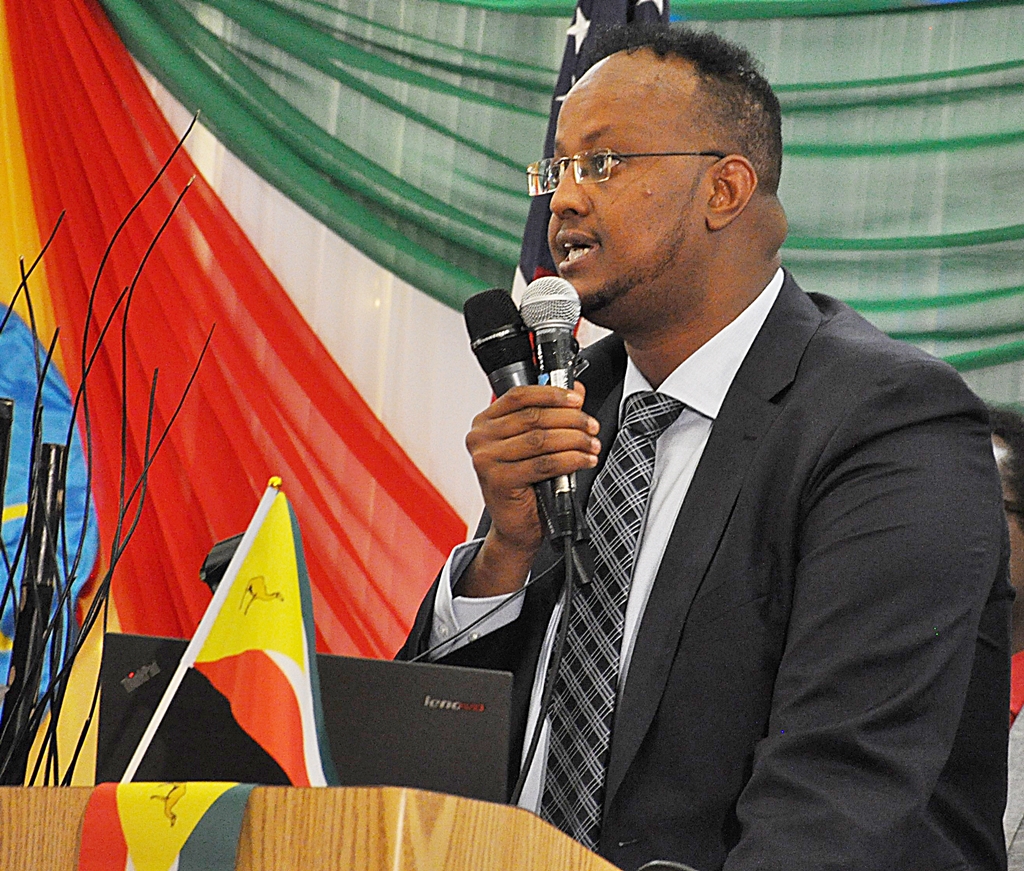By Issa Mansaray | The AfricaPaper
Bloomington, Minn – More than 1,000 people with ties to the Ethiopia-Somalia area in the Horn of Africa last week gathered at the Marriott Hotel in Bloomington to welcome government officials from their region amidst recent tensions between major clans over the region as an independent nation.
The delegation led by Majida Mohamed Mohomud, Acting Minister of Agriculture and Livestock, and Hon. Khadar Abdi Ismali, arrived in Minnesota Dec. 17.
Updates
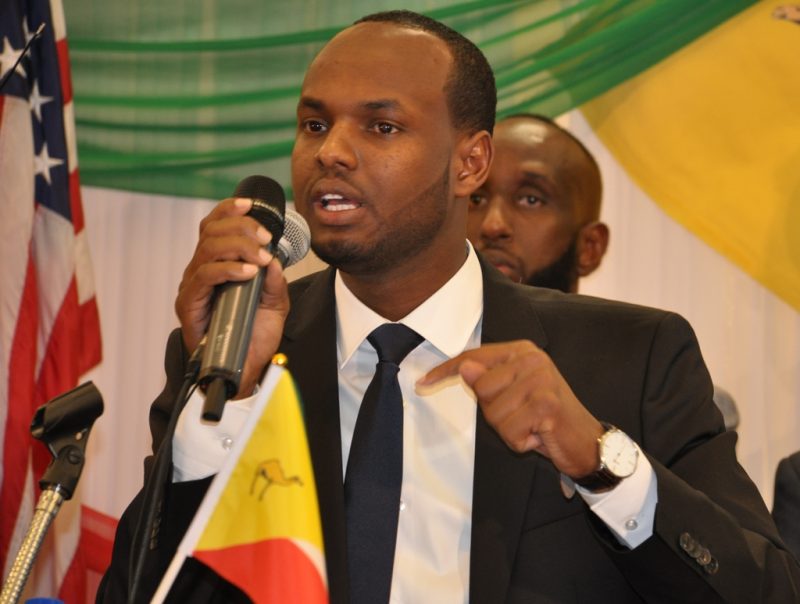
Organizers said the East African leaders came to the Twin Cities to listen to the region’s citizen, and to provide insights on government activities and progress over the past decade in the embattled region. At the town hall-style gathering on Dec., 23, attendees were given the opportunity to share their thoughts on regional stability, tribal conflicts and business development. This is not the first time that President Abdi Mohamed Omar’s government has sent delegation to the Twin Cities, a home to more than 5,000 Ethiopian-Somalis in the U.S.
Outreach
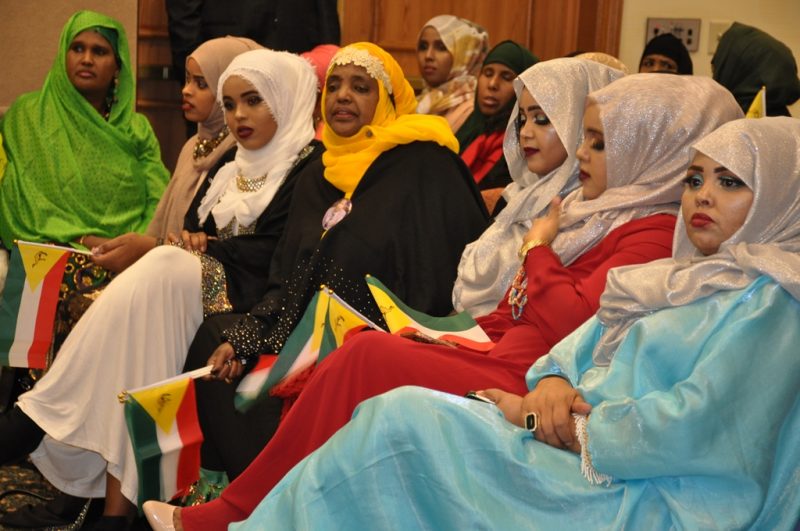
Many saw the ministers’ visit as an opportunity to clarify some of the misunderstanding between the tribes and the government. Ismali said the government has continued to create jobs and stir economic developments throughout the region.
“It is an outreach from the government to the people from the region, Europe, and America,” said Liban Ahmed, a student. “This helps to make the connections between the community and the government. To travel and come over to talk with the community. Often, they do, and we do appreciate that.”
Before the arrival of the delegation, major clans in the Twin Cities declared independence. But during his visit, Ismali, stay the course, reassuring peace, adding that their visit was not geared to represent any clan or group of people, but all people from the Ethiopia-Somalia region.
Ismali like the other speakers denied claims of “government arresting opposition relatives back home,” and simply referring to the allegation as “propaganda.”
Progress
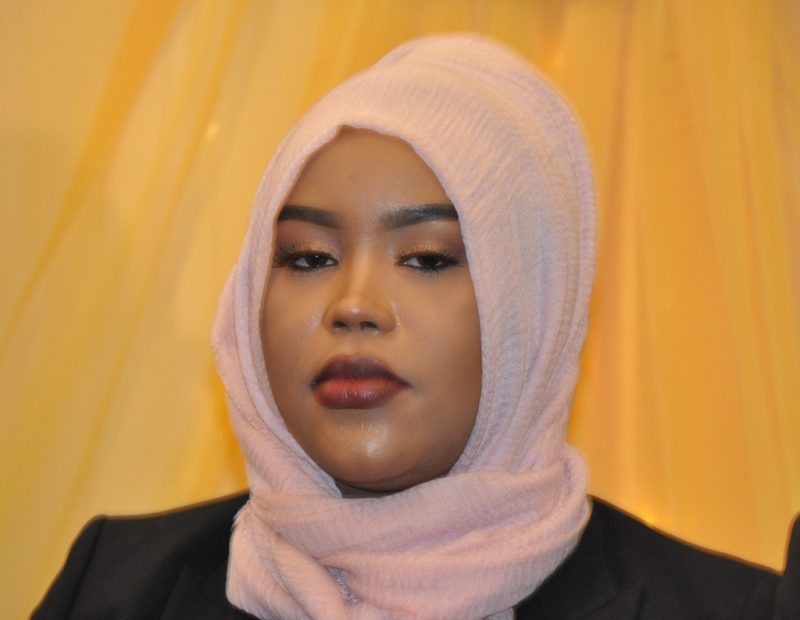
Most Somalis were sheltered in Ethiopia during the 1977-1978 conflict. Many settled in the Ethiopian region that has become their home. At last week’s gathering, the reaction by many participants was joyful and relaxed. Many agreed that they liked what the government is doing in terms of helping people and developing the East African region.
The region has experienced recent drought, and Ismali said the government is addressing the problem. Other delegates shared similar sentiments.
Speaking mostly in his native language, Abdi Ismali stated that the government has increased its budget, encouraged foreign investment, reviewed its investment laws, and has worked to invite international industries in the region. Ismali added that the government has created about 20,000 jobs in recent years, a figure that many saw as encouraging in one of the largest region.
Focus
Abdi Mahad, the Acting Head of ESRS, said the government is working hard to eliminate drought, develop the region’s infrastructure in hopes to spur economic growth. He further discussed government’s plans to revitalize education, healthcare, and hoped for permanent peace.
Mr. Khadar Abdi Ismali’s comments drew praises and horrible recollections from some of the attendees.
“Twenty-six years ago [May 28, 1991] the freedom fighters of Alliance for Freedom and Democracy (AFD) liberated millions of Ethiopians from a fascist government that was cruel to its people for decades,” said Hashim Yonis, one of the event organizers.
“Our grandfathers, grandmothers, fathers, mothers, brothers and sisters were those who were dehumanized just because of who they were. Today under President Abdi Mohamed Omar, the region is excelling in all sectors.”
Reassured
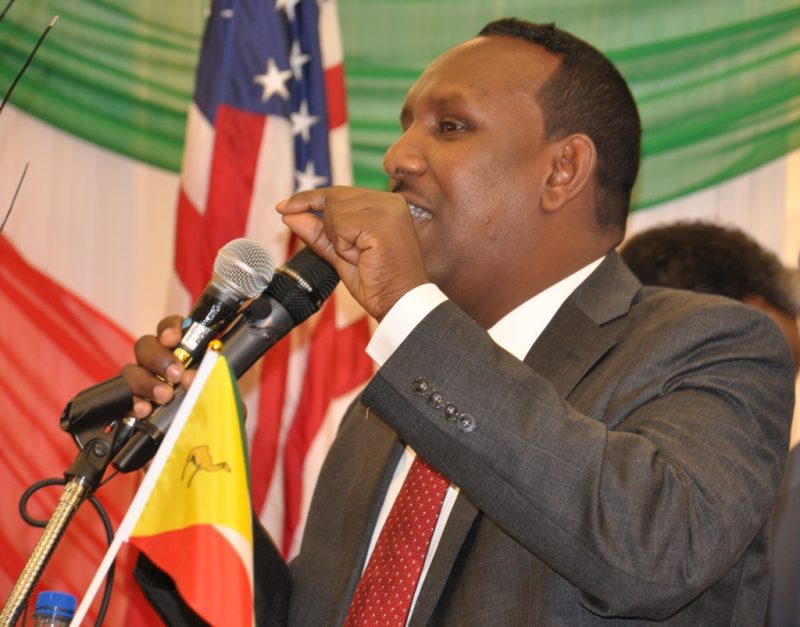
Abdi Mohamoud Omar, president of the Somali region in Ethiopia joined the town hall meeting via telephone. Like the other speakers, the leader reassured his people about the progress his government is making in the region. Omar, who also serves as, head of the ruling Ethiopian Somali People Democratic Party, said his government is open to suggestions from its citizens.
The delegation will spend two weeks in Minnesota meeting groups from the region and community leaders.
“The outreach to the community you serve in foreign lands and at home is very important,” said Liban Ahmed.
The Ethiopia-Somali delegation to Minnesota includes Abdi Mahad, Head of the ESKS Administrative Bureau of Jigiga; Guled Ali Kahin, Director General of the Ethiopian-Somali Region Agro-Pastoral Research Institute, and Ibrahim Adam Mahad, Minister of Education. |TAP|Africa’s Newspaper of Record



































